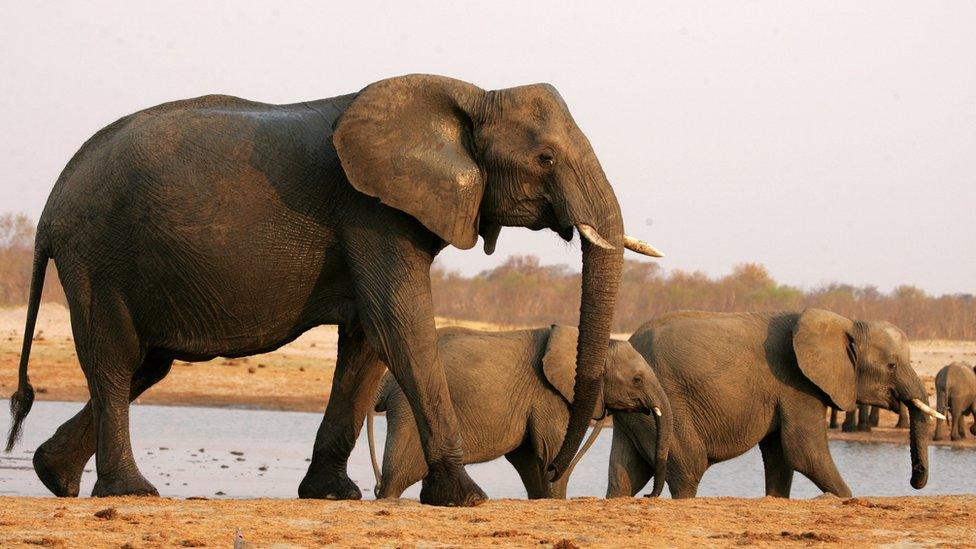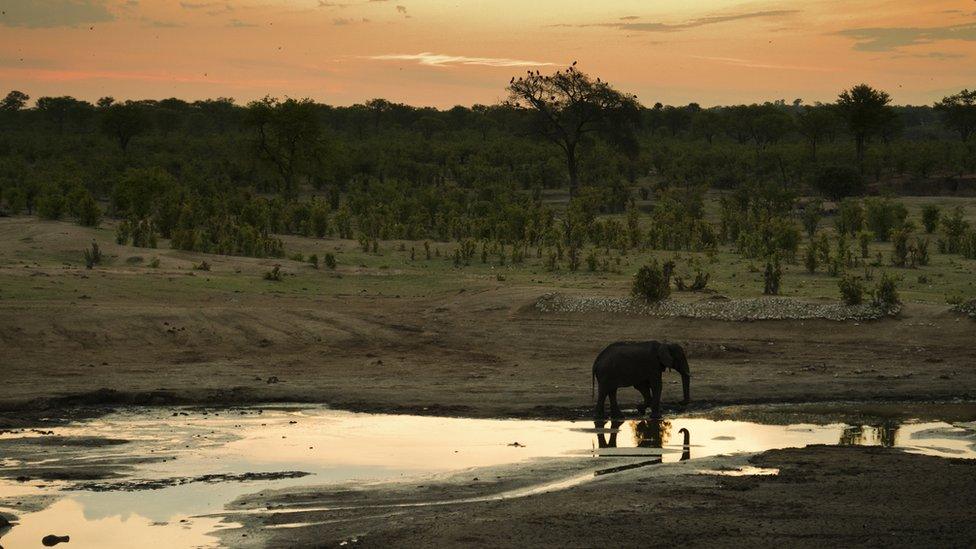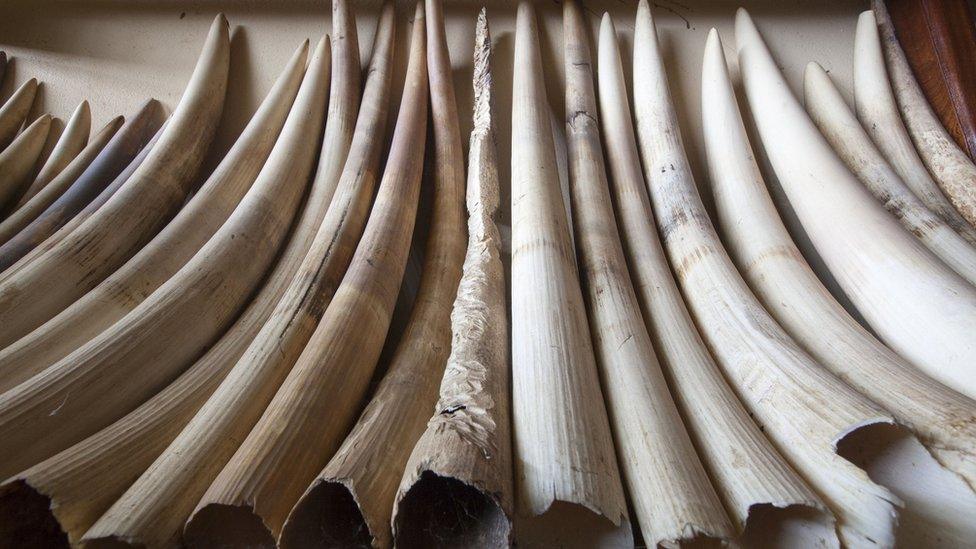Elephant trophy ban reversed in United States
- Published

Trump's administration have lifted a ban on the important of elephant trophies from Zimbabwe and Zambia
President Trump's administration is planning to reverse a ban on importing the remains of endangered elephants, hunted for entertainment, into the United States.
The remains are often referred to by hunters as 'trophies', and they come mostly from Zimbabwe and Zambia.
The reversal of the ban has upset many people who believe it will encourage hunters to carry on harming elephants, which is already a species under threat of extinction in some places.
However, the US Fish and Wildlife Service - the part of the US government responsible for nature and wildlife - claims that "legal, well-regulated sport hunting" can be helpful to the conservation of the species.
They argue that some of the money raised by tourism by hunters can be used to help pay for conservation.

What is a 'trophy'?
Elephant 'trophies' are parts of the animal, normally tusks, that hunters keep to show off their hunting skills.


Some are worried that the lifting of this ban will encourage more people to hunt elephants
African elephants have been listed as threatened under the US Endangered Species Act since 1978.
In 2014, President Obama's administration banned the import of elephant trophies from Zimbabwe.
They did this because they believed that Zimbabwe was not managing legal hunting in the country well enough.
In an official statement from the US Fish and Wildlife Service, they said that this ban will now be lifted as they believe that legal sporting would put "much-needed revenue back into conservation".
However, many people are concerned that lifting this ban on trophy imports will encourage more hunting and endanger the species further.
- Published6 October 2017

- Published5 October 2016

- Published1 October 2016

